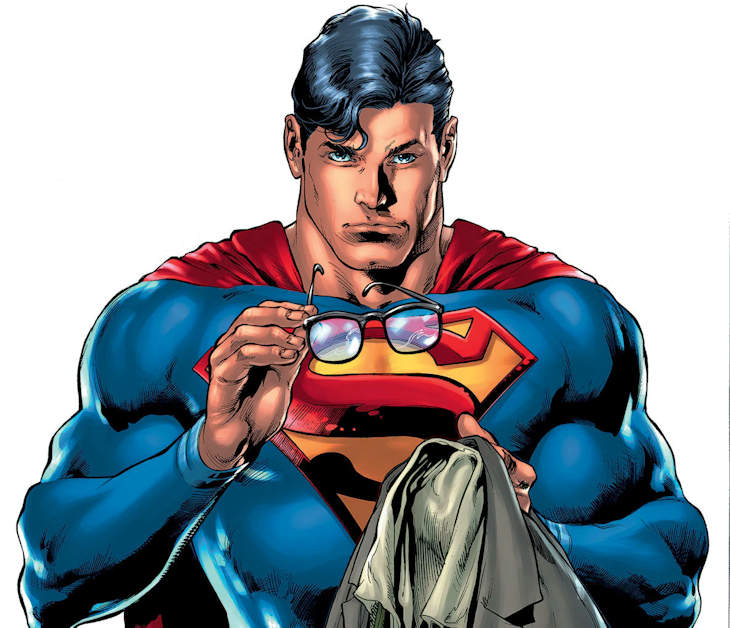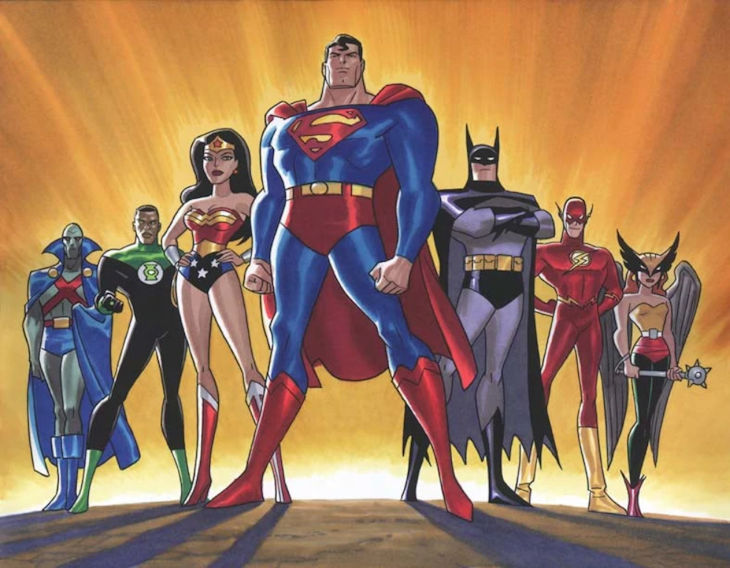Most dictionary definitions of superhero include having superhuman powers as one of the criteria, which annoys me to no end considering Batman, obviously one of the most popular and famous superheroes of all time, doesn’t meet this criterion. The truth is, I don’t think a good definition of a superhero can really be summed up in a single line. It’s a character type and genre which is somehow fairly specific yet very flexible. In some ways, I think what determines a character’s status as a superhero depends more on context than anything, which includes whether or not they share a universe with other superheroes, especially if they fight alongside them. But I have thought of a few characteristics that tend to be strongly associated with superheroes, such that most superheroes have most of them. And since this blog’s main focus is Superman, I’ll be comparing the Man of Steel against these criteria. That may sound like a silly exercise considering the prototypical superhero will obviously met most of them, but I think it could prove interesting, especially seeing the few that he doesn’t meet.
Superhuman Powers
I might as well start with the most obvious indication that a character is a superhero, even though the point of this exercise in the first place is the fact that it’s a far-from-universal trait. But there’s no denying that the association of superheroes with superhuman, supernatural, or otherwise highly unusual powers, or superpowers as we tend to call them nowadays, is incredibly strong. And the fact that Superman possesses this feature is exceedingly obvious. Let’s move on.
Superhero Name
This is a pretty boring and obvious one, so I won’t spend too long here. Superheroes usually have a name other than their real name which they go by, which is usually simple, memorable and descriptive or evocative of something important about them. And obviously Superman has this.
Altruistic Motives
This is quite an important one, in my mind. It’s one of the most obvious ways in which superheroes tend to differ from other otherwise similar characters. Superheroes generally want to make their community and/or world a better place. Their main motivation isn’t to attain a personal goal, even if it’s a noble one. They go out of their way to help people and bring evil people to justice. Even superheroes who actually have selfish motives may want to appear like they’re motivated altruistically.
Needless to say, Superman meets this criterion exceedingly well, but even then there’s been a certain evolution to the character. It was more common in earlier stories for Superman to encounter a large percentage of situations he helps with during his life as Clark Kent and thus he mostly helped out in Metropolis. As time goes on, Superman tends to be more active patrolling the entire world and intervening everywhere.
Superhero-Style Costume
OK, this is not the most descriptive name, obviously…but I didn’t want to stuff a description of what these costumes are like in the heading.
Superhero costumes often have the following traits:
- Bold contrasting colors
- Made of tight-fitting material
- A distinctive symbol or logo, often located on the chest
- A mask or something else which obscures the eyes
- Boots and/or gloves
Superman’s costume has most of these traits, though not every single one. Most notably, he doesn’t have a mask. Some pieces of Superman media (off the top of my head, the Superman: Birthright comic) try to make this significant and have something to do with Superman wanting to appear trustworthy and like he has nothing to hide. Personally, I find this a bit contrived and unnecessary, though on the other hand it doesn’t do much harm.
Secret Identity and Double Life
Traditionally, this has been an important part of what it means to be a superhero, though interestingly as time goes on it seems to be de-emphasized more and more, with many superheroes no longer having secret identities and/or their civilian lives being less important to the story. Superman himself is an example of this, as for most of his history his secret identity and life as Clark Kent has been a key aspect of the character, but he revealed his identity to the public in Superman (Vol 5) #18, released December 2019. Of course, this change to the mainstream comics doesn’t mean that his secret identity will no longer appear in adaptions, and with the popularity of retcons and reboots, it’s perfectly possible (and in my opinion very likely) that Superman’s secret identity will eventually return in the comics.

Special Training and Equipment
This is especially a prominent trait for those superheroes, such as Batman and Green Arrow, who don’t possess superpowers, but is by no means exclusive to them (think of Spider-Man’s webbing or Wonder Woman’s lasso, for example).
By and large, Superman doesn’t prominently possess this trait, but it’s definitely a “No, but…” sort of situation. He is sometimes depicted as having access to plentiful advanced technology, especially located in his Fortress of Solitude, but that doesn’t mean he typically carries these items with him or uses them as a major part of fundamental superhero tasks such as combat or transportation.
Interestingly, Superman: The Animated Series shows Superman using equipment a bit more often, which seems related to the fact that this version of Superman is weaker than many people are used to. For example, he uses a spacesuit and a diving suit which most versions of Superman probably wouldn’t need, and even uses a spaceship to fly though space rather than just…flying through space.
As for the special training…that’s a little tricky. The thing is, Superman actually is sometimes depicted in comics as having martial arts training, but this is not emphasized very much, especially compared to characters such as Batman. And a lot of Superman media just doesn’t bother with this at all. So I feel safe saying this isn’t really a part of Superman’s character even if it is featured occasionally.
A Life-Changing Event That Inspires Their Superhero Career
Usually, the life-changing event is getting their powers, of course, but not always, especially if it’s a superhero that doesn’t have powers. For Batman, it’s his parents being murdered, which also shows that the event doesn’t need to immediately precede the superhero career. Spider-Man is an example of a character with powers who needed a different life-changing event (Uncle Ben’s death) to prompt him actually going down the superhero path.
Most versions of Superman don’t really have this trait. He’s always had his powers, and he simply decides to become Superman because he wants to help people. There doesn’t need to be a dramatic event to get him to choose this path. However, there is often frequently some evolution for Clark into the superhero role, which often includes his literal powers developing over time. And some media does feature or play with this trope, perhaps most notably the 1978 film, where Clark doesn’t really know what do with his powers until the AI containing Jor-El’s personality informs and educates him.
Rogues Gallery
The final trait I’d like to discuss here is that most superheroes have a “gallery” of villains they clash with. Superheroes often don’t definitively defeat their enemies, and they often don’t focus on taking down one enemy at a time. Rather, they fight different villains in different stories and defeat them on a temporary or potentially temporary basis. These villains oftentimes have similar traits as superheroes such as powers, being identified by an alias other than their real name, having a distinctive costume, and, well…actually, pretty much everything else on this list except for the altruistic motives part.
Obviously, Superman has this, though he does deal with one-off villains and problems fairly often, moreso than other heroes. This tends to be be truer the farther back you go in his history, as it took a while for the rogues gallery concept to develop at all. And even once it started to emerge, it didn’t always make its way into adaptions. For example, the Adventures of Superman show from the 1950s has no rogues gallery or supervillains at all.
Conclusion
There’s no such thing as a definitive list of traits that make a superhero a superhero. For example, the Hulk actually doesn’t fit many of these traits. But I think for the most part, I assembled a fairly accurate list. Most superheroes have a good number of these characteristics, maybe even most of them. And Superman, obviously, is no exception. It would be pretty weird if he was.
Funnily enough, Spider-Man actually matches this list a little better than Superman does. Is Spider-Man the true archetypal superhero?

